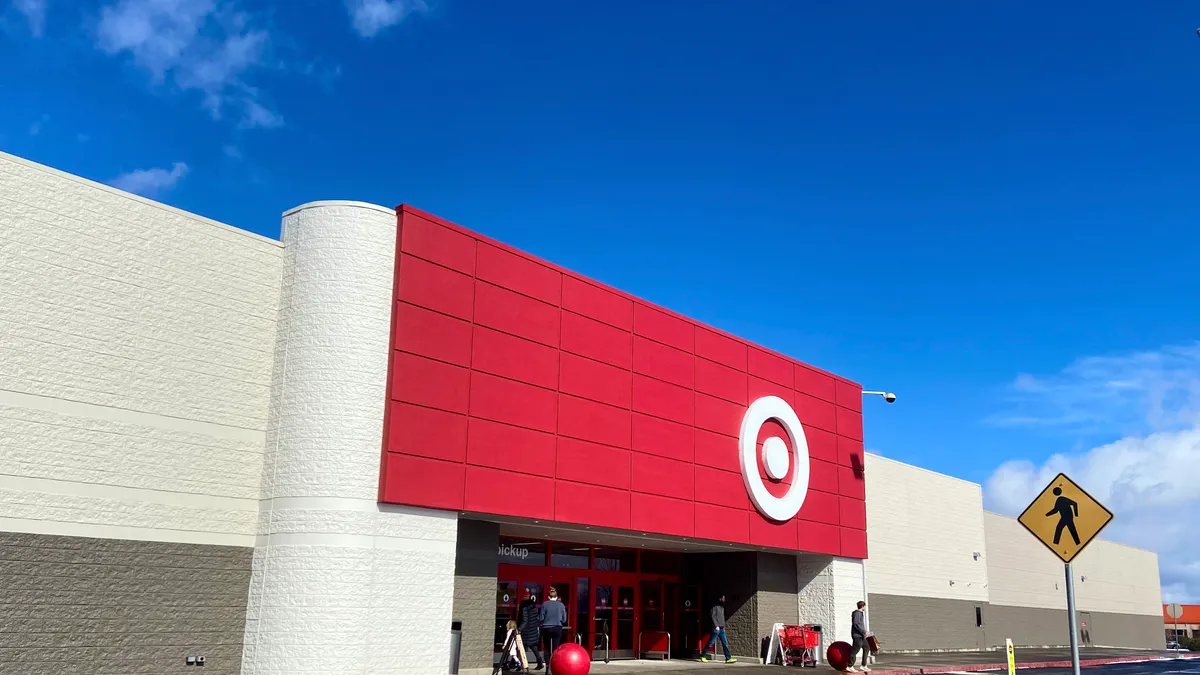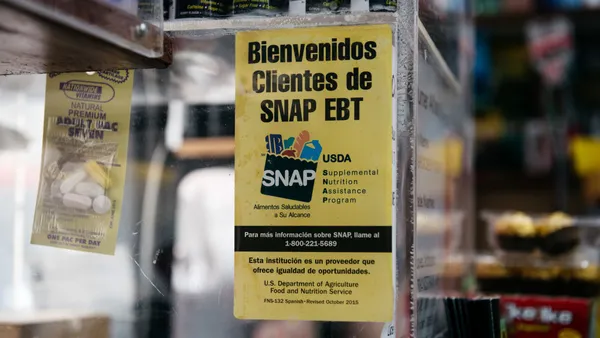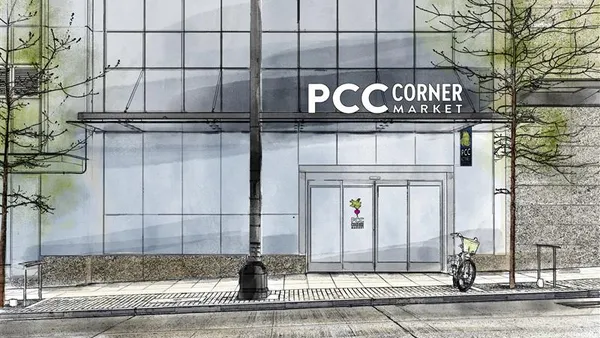Dive Brief:
- Target on Wednesday reported a mixed second quarter. For the three months ending July 29, profits beat expectations but sales were softer than expected. Total revenue of $24.8 billion was down nearly 5% year over year.
- Comparable sales declined 5.4%, with comp store sales decreasing 4.3% and comp digital sales falling 10.5% year over year. Operating income was $1.2 billion, a 273% spike, driven by a higher gross margin rate.
- Target CEO Brian Cornell also acknowledged that a strong negative reaction to this year’s Pride month merchandise assortment affected revenue. The company defended its response to the controversy, which included removing and repositioning merchandise, saying it sought to maintain the safety of its in-store team members in the face of threats and violence.
Dive Insight:
Last year, Target faced excess inventory due to rapid changes in consumer spending patterns, Cornell said during an earnings call. Along with that challenge, macroeconomic trends continue to affect how consumers are engaging with retailers.
Those factors include inflation in essential categories like food and beverage and essentials, which means consumers are spending more of their budgets on these items and less on discretionary purchases. Faced with these pressures, many consumers are also choosing to spend on services or experiences, like travel, entertainment or dining out, executives said.
Cornell also spoke about the controversy over the retailer’s Pride month merchandise offering. Target has featured a Pride assortment for years. He defended Target’s actions, saying that the threats and aggressive behavior the Pride month assortment generated affected its employees' sense of safety.
“So, to protect the team in the face of these threatening circumstances, we quickly made changes, including the removal of items that were the center of the most significant confrontational behavior,” Cornell said. “Pride is one of many heritage moments that are important to our guests and our team, and we’ll continue to support these moments in the future.”
In other comments regarding consumer spending, Cornell said, “the rollback of government efforts to support consumers during the pandemic, including stimulus payments, enhanced childcare tax credits and the suspension of student loan payments presents an ongoing headwind.”
In response to current economic trends, Target on Wednesday lowered its full-year guidance. The retailer now expects a a mid-single-digit decline to comp sales for the rest of the year. For Q3, Target forecasts that comp sales will also range around a mid-single-digit decline.
Target’s sales softness is due to softer macro trends and the residual fallout from the Pride merchandise controversy, analysts with Telsey Advisory Group, led by Joe Feldman, said in a Wednesday note. “Longer term, we continue to believe Target should gain market share, supported by ongoing strategies — price investments, private brands, remodels, small format stores, fulfillment/supply chain enhancements, loyalty programs, and [the] Target Plus marketplace — as well as partnerships with top brands, such as Ulta Beauty,” Telsey’s analysts said.
The retailer’s core beauty category delivered double-digit growth, according to Christina Hennington, Target’s chief growth officer. Additionally, sales from Ulta Beauty at Target more than doubled year over year. But discretionary categories, specifically apparel, home and hardlines, saw comp declines in the low-double digits to mid-teens in Q2. That’s several percentage points softer than the first quarter.
Despite sustained macroeconomic pressure on retail, Target’s Q2 update “was better than feared,” with margin upside driving earnings per share beyond expectations despite sales weakness, Wells Fargo analysts led by Edward Kelly said in a note. Wells Fargo also noted that the reduced fiscal year guidance “now seems reasonable.”
Target’s leadership team also highlighted some bright spots. They included positive early results from its recent nationwide launch of allowing customers to make drive-up returns and order Starbucks. Chief Operating Officer John Mulligan said drive up “receives the highest satisfaction rating of any service we provide.”
The retail world is also in the midst of back-to-school and back-to-college season, which is the second biggest time of the year for Target next to the holiday season, the company said.














